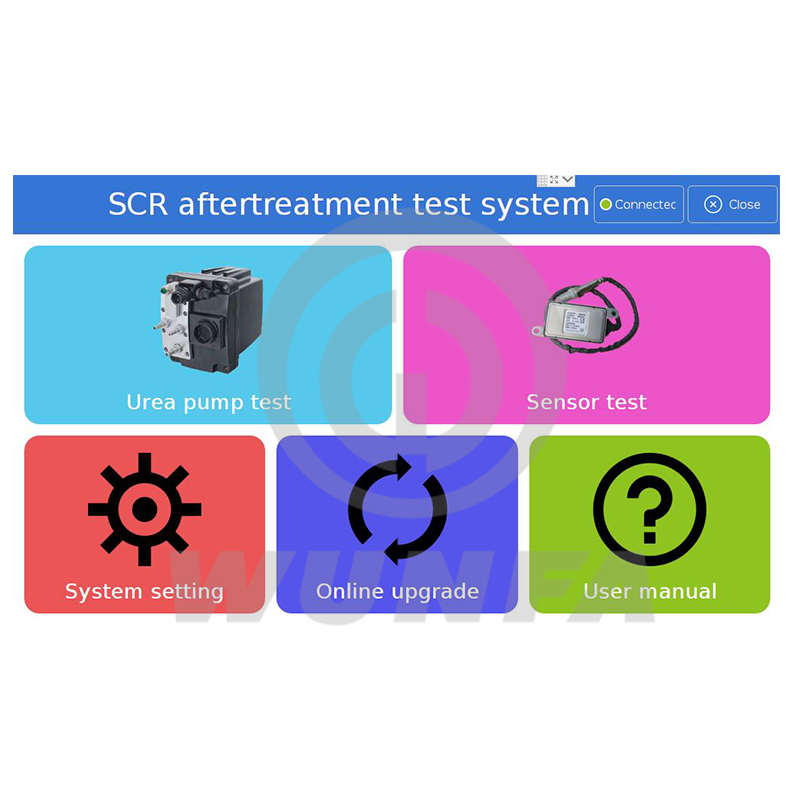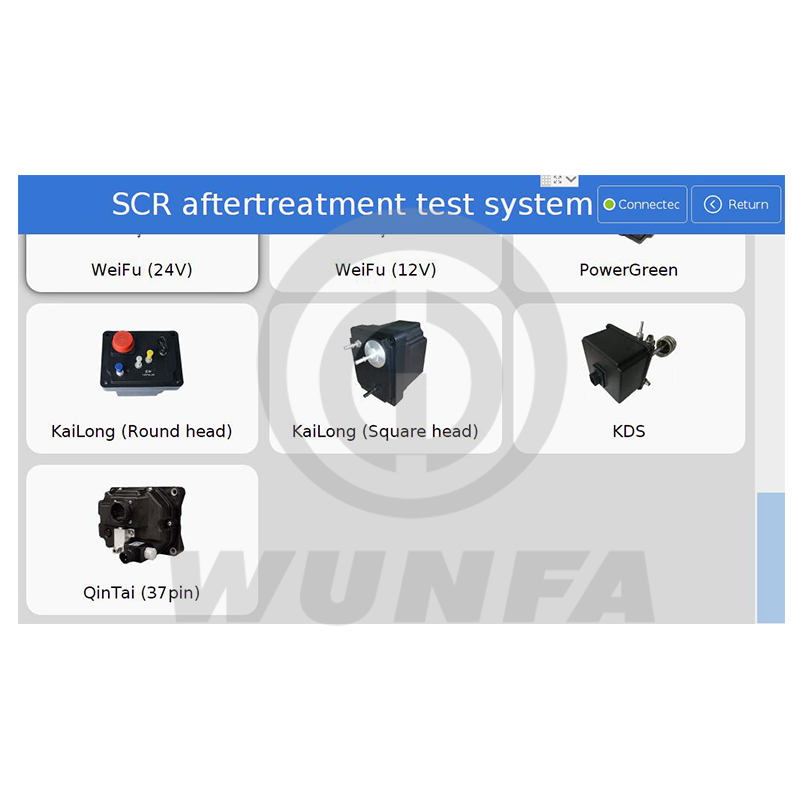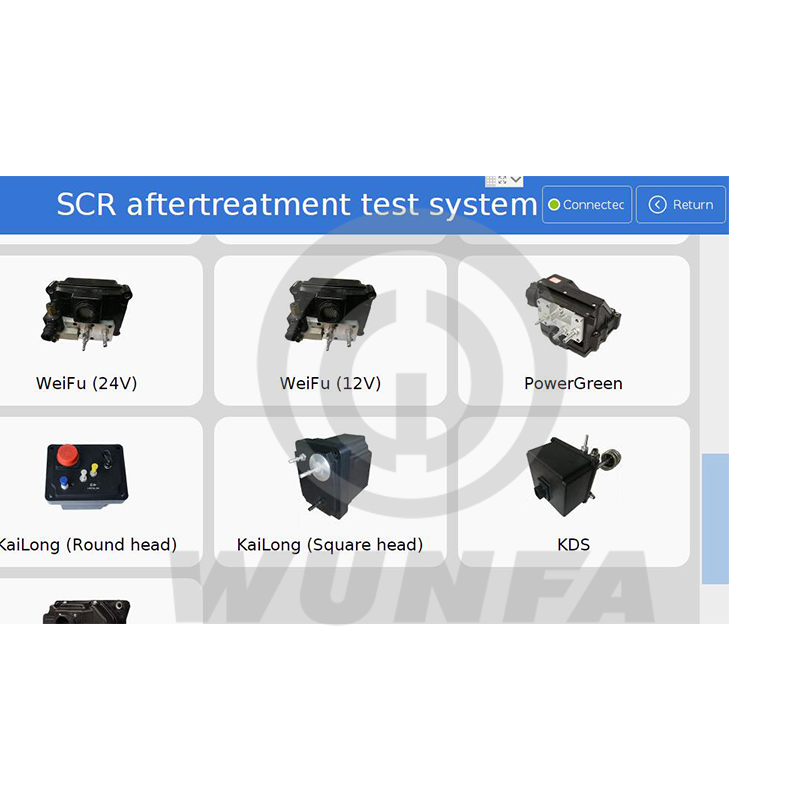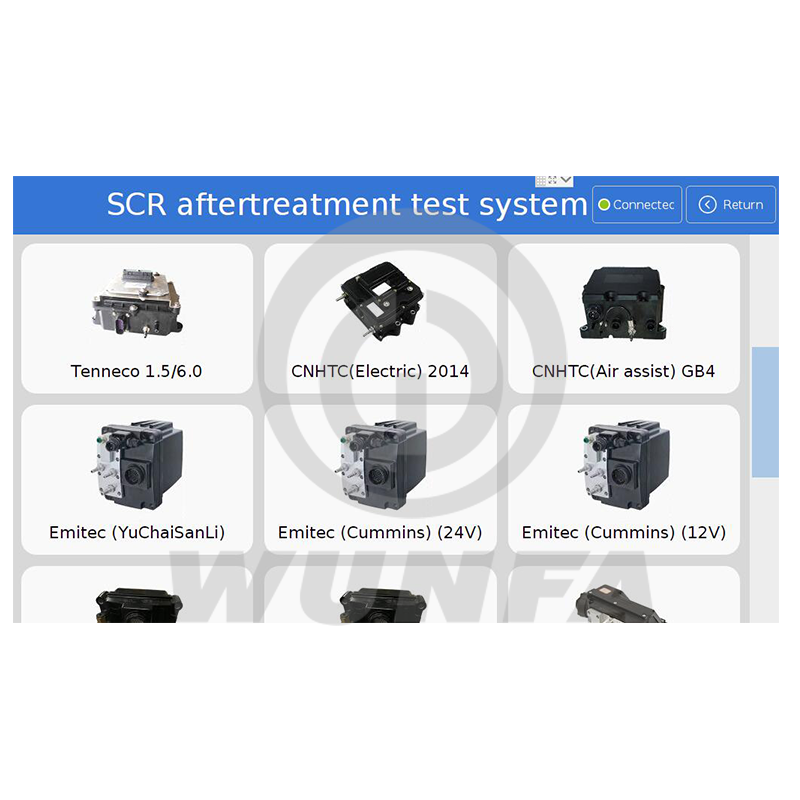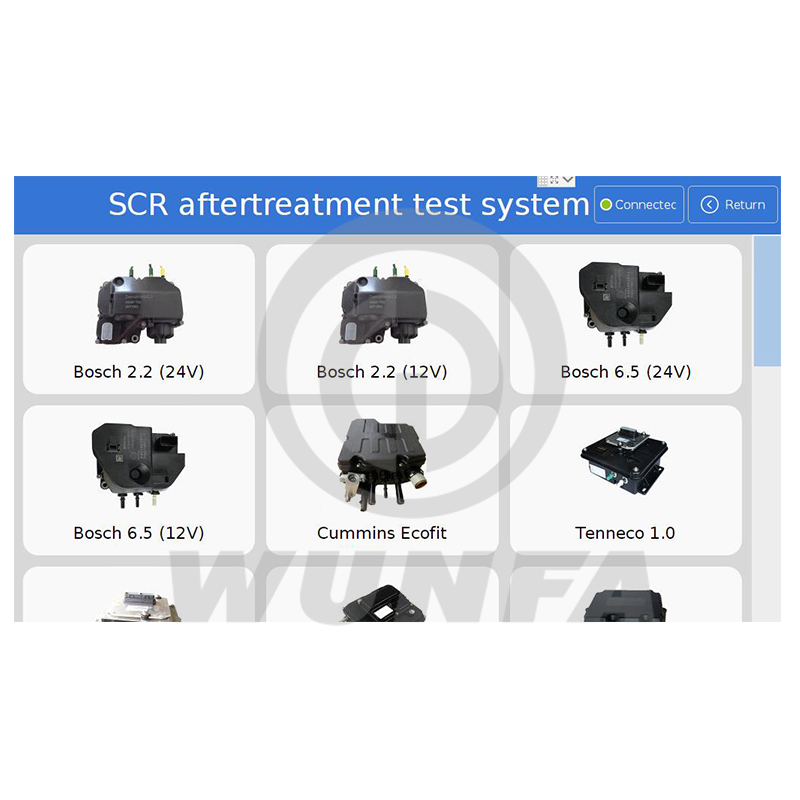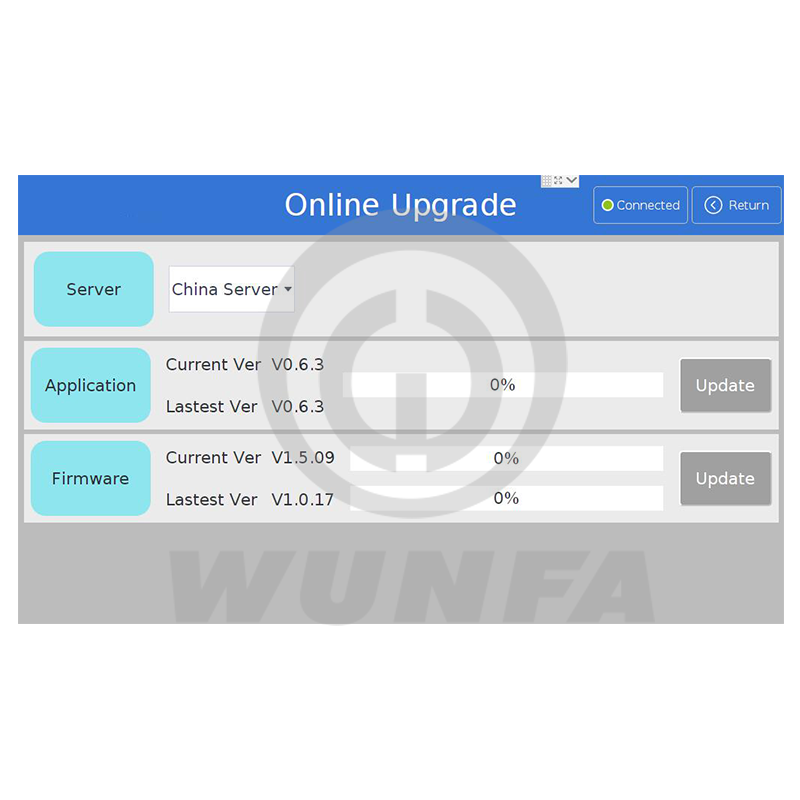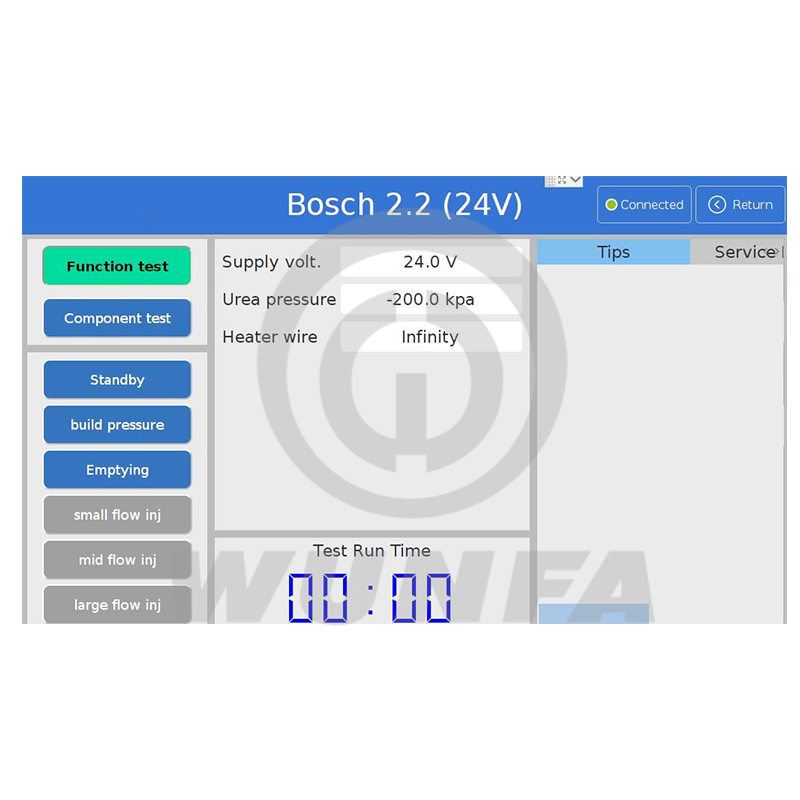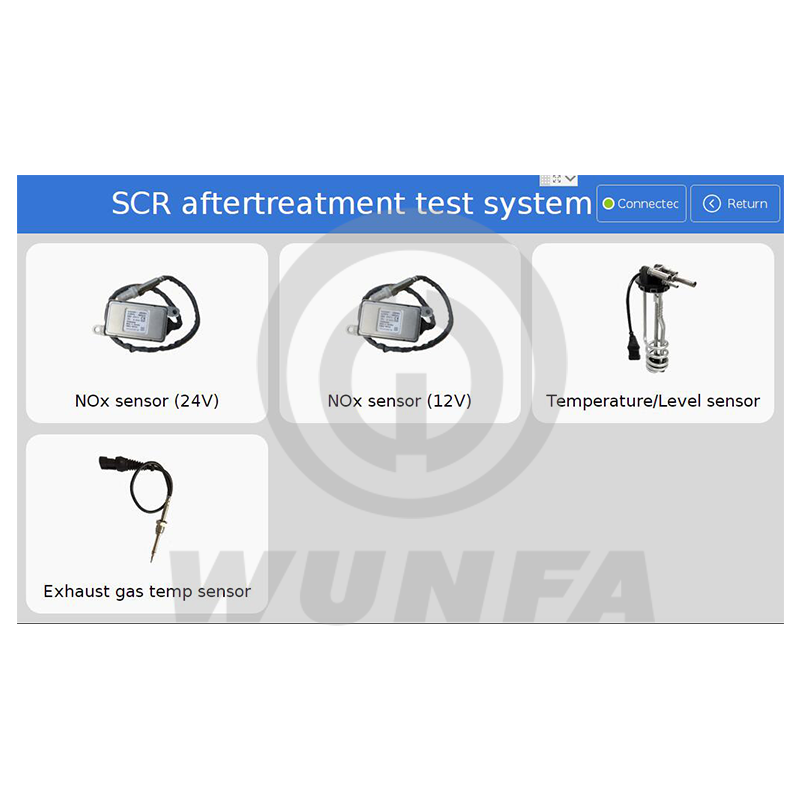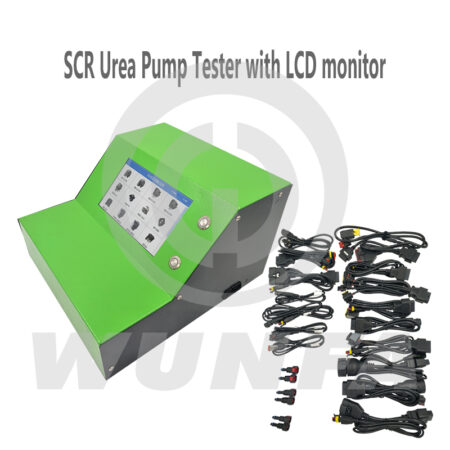Software of SCR urea pump controller Information
An SCR (Selective Catalytic Reduction) Aftertreatment Test System is a specialized diagnostic tool used in the automotive industry to test and analyze the performance of SCR systems in vehicles equipped with diesel engines. SCR systems are a type of exhaust aftertreatment technology used to reduce harmful emissions, particularly nitrogen oxides (NOx), by injecting a urea-based solution (often referred to as diesel exhaust fluid or DEF) into the exhaust stream.
The key features and functions of an SCR Aftertreatment Test System:
- Compatibility: The test system is designed to work with vehicles equipped with SCR systems, typically found in modern diesel engines, to comply with emissions regulations such as Euro 6, EPA Tier 4, and others.
- Comprehensive Testing: The test system offers comprehensive testing capabilities for various SCR system components, including the SCR catalyst, diesel exhaust fluid (DEF) injector, DEF pump, temperature and pressure sensors, and other associated components.
- Functional Testing: The system enables technicians to conduct functional tests on the SCR system, verifying its proper operation. This includes testing the activation and deactivation of the DEF injector, monitoring temperature and pressure levels, and ensuring that the SCR catalyst is performing within specified parameters.
- Diagnostic Analysis: The test system can diagnose and identify issues with the SCR system, such as malfunctioning components, sensor errors, or system faults. It provides detailed diagnostic information to help technicians pinpoint the root cause of problems and perform effective repairs.
- Data Logging and Analysis: Some SCR aftertreatment test systems offer data logging capabilities, allowing technicians to record and analyze various parameters such as temperature, pressure, flow rates, and exhaust gas composition during testing. This data helps identify trends, anomalies, and potential issues with the SCR system.
- Calibration and Adjustment: Advanced test systems may include features for calibrating and adjusting parameters of the SCR system, such as injector timing, dosing rates, and temperature control. This allows technicians to optimize the performance of the SCR system for maximum efficiency and emissions reduction.
- Compatibility with Diagnostic Tools: SCR aftertreatment test systems may be compatible with diagnostic scan tools or software platforms commonly used in automotive repair shops. This integration enables seamless data sharing, enhanced diagnostic capabilities, and access to manufacturer-specific diagnostic procedures and information.

